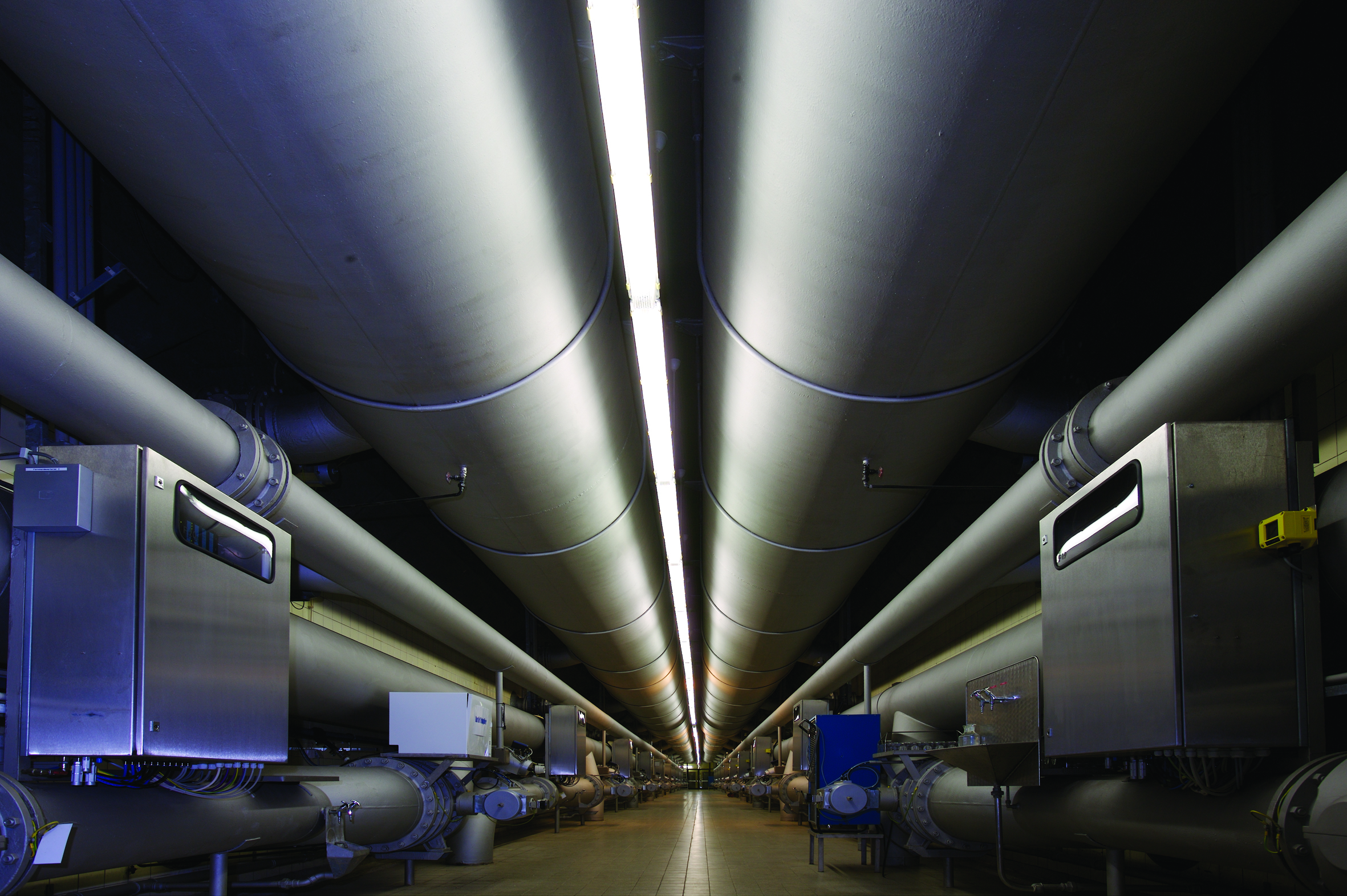W-Net 4.0: Open up digitization potentials for water utilities
Industry 4.0 is on everyone's lips. A corresponding digitization strategy could offer water supply companies great added value - but usually fails due to software equipment, incomplete data basis and/or lack of in-house expertise. The W-Net 4.0 joint project promises to remedy this situation, with the aim of combining geoinformation, simulation and data analysis tools in a secure, easy-to-use web platform. The Federal Ministry of Education and Research (BMBF) is funding the project with about 1.6 million euros.

The advantages of a digitalized and networked water supply are obvious: Sensors systematically monitor water quality, network utilization and its error-free functioning. A control system in conjunction with appropriate drive elements enables flexible control from a central location. Thanks to modern data analysis methods, many processes can even be automated. Finally, the pipeline system is completely digital, which means that new scenarios, such as those involving additional large consumers, can be simulated at any time and interventions in the infrastructure can be precisely planned.
Central platform for GIS, data analysis and simulation
"In principle, the technologies for such a digitalized water supply scenario have long been developed. In practice, however, the barriers to entry are still too high for the vast majority of water suppliers," says Dr. Thomas Bernard from the Fraunhofer Institute for Optronics, Systems Engineering and Image Exploitation IOSB. Together with his partners in the W-Net 4.0 project, the physicist and water expert is therefore planning to develop a kind of all-round carefree package for water suppliers: a web-based platform that combines all the necessary functionalities, can be operated by industry 4.0 laypersons and meets the highest standards in terms of data protection and IT security.
"We rely on a modular, scalable concept that includes a geographic information system (GIS), simulation software and tools for data analysis," explains Bernard. The researchers also have the development of suitable training programs on their agenda, especially for employees of small and medium-sized water utilities. Finally, they also have their sights set on possible new service concepts and business models that could be created on the basis of the platform to be developed.
Solution for all company sizes
Involved in the project are COS Systemhaus OHG (Ettlingen), which is responsible for the development of a user-friendly GIS and the connection of the data analysis and simulation tools, and 3S Consult GmbH (Karlsruhe/Garbsen), which is responsible for the development of simulation tools and training simulators. The user side is represented on the one hand by SchwarzwaldWasser GmbH, which will coordinate the application of the new platform at the small and medium-sized water suppliers Stadtwerke Bühl, Nagold, Meßkirch and Glatten. On the other hand, Berliner Wasserbetriebe, as a large end user, will focus on data analysis in the area of drinking water quality as well as in wastewater processes. The Fraunhofer IOSB in Karlsruhe will be responsible for the coordination and development of the data analysis tools, and will contribute its expertise in machine learning and artificial intelligence methods.
The three-year research project started in November 2018. Its full title is: "Dynamic Value Networks based on Industry 4.0 Technologies for Sustainable Safety and Operational Optimization of Water Systems". The BMBF supports the joint project as part of the funding measure "Industry 4.0 collaborations in dynamic value-added networks (InKoWe)" in the Water Cluster.
Weitere Materialien
Last modified:
 Fraunhofer Institute of Optronics, System Technologies and Image Exploitation IOSB
Fraunhofer Institute of Optronics, System Technologies and Image Exploitation IOSB